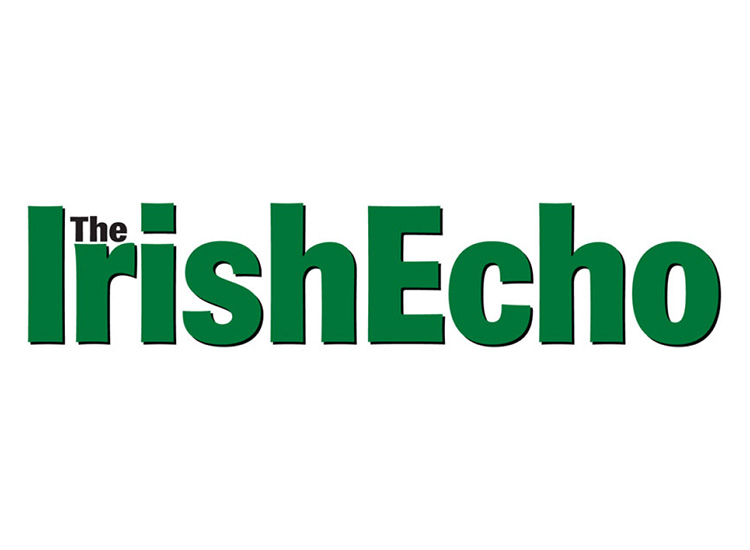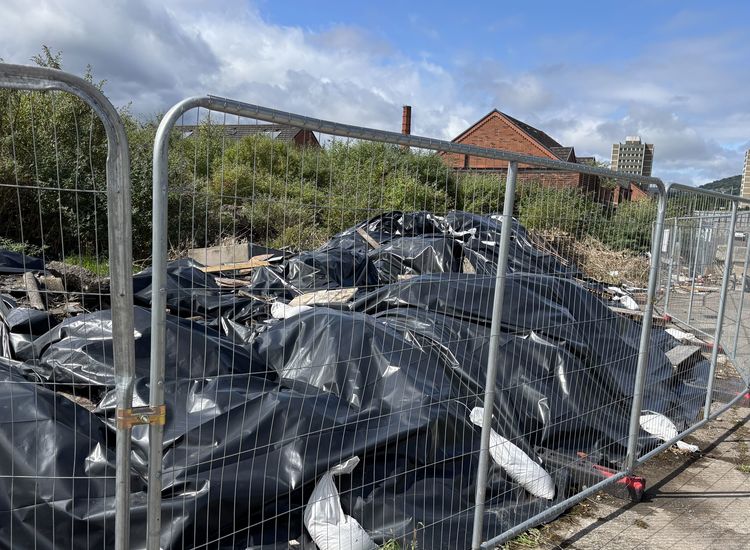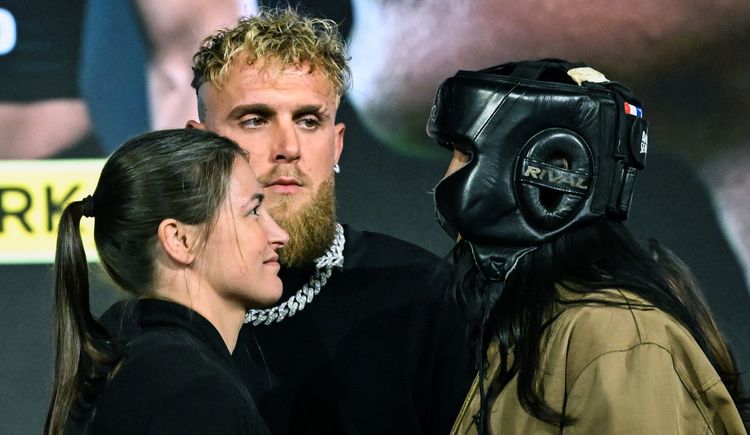Prof. Abby Bender.
Page Turner / Edited by Peter McDermott
Charles Stewart Parnell said in Committee Room 15 at Westminster as he was being toppled as the leader of Irish nationalism in December 1890 that he had “come within sight of the Promised Land.”
This wasn’t some grand rhetorical flourish. As Abby Bender, author of “Israelites in Erin: Exodus, Revolution, and the Irish Revival,” told us this week, the “biblical story of the Israelite Exodus from Egypt—liberation from oppression and the journey to a Promised Land—has been present in Ireland’s political and literary imagination. The Irish-Jewish analogy was once ubiquitous in Ireland; it grew to prominence by the 17th century, and it remained a staple of proto-nationalist and nationalist thinking into the first decade of the 20th century.”
In a James Joyce Literary Supplement review, fellow Joycean scholar Greg Winston calls Bender’s book “painstakingly researched and beautifully argued.”
He writes, “A pivotal middle chapter considers an interlude of ‘anti-Exodus’ response spearheaded by Padraig Pearse, as Revival literature turned away from Moses and towards Catholic symbolism leading up to the Easter Rising.
“The final two chapters turn to how ‘Ulysses’ brings the Irish-Jewish analogy back to the heart of the cultural-nationalist conversation.”
Winston adds, “Any Joyceans who might want to skip right to the chapters on ‘Ulysses’ do so at the risk of missing the fascinating bigger picture that emerges of James Joyce very much in dialogue with the Revival and, to a surprising degree, aligned with Lady Gregory on issues of Ireland’s political leadership and national self-determination.”
Bender, who teaches in the Languages and Literature department at Sacred Heart University, and is involved in the Irish Studies minor and the SHU campus in Dingle, told the Echo, “Joyce described ‘Ulysses’ as an ‘epic of two races: Israel-Ireland,’ and his protagonist is both Irish and Jewish. Joyce highlighted the ironies and limits of comparing Jewish and Irish suffering, but he was also in earnest about exposing xenophobia, anti-Semitism, and racism.
“It’s worth noting that while Joyce foregrounds the Exodus story as an Irish exploration of liberation from colonialism and solidarity with the Israelite/Jewish experience, ‘Ulysses’ also explores American violence against its black citizens in passages about lynching, cultural appropriation, and considerations of global systemic oppression,” she said. “Joyce was deeply interested in transnational expressions of solidarity a century before thousands of people in Ireland marched in support of the Black Lives Matter movement, as we witnessed this week.”
Abby Bender
Place of birth: New York
Spouse: Ambrose Raftery
Children: Bram and Ziva
Residence: Westchester, N.Y.
Published works: “Israelites in Erin: Exodus, Revolution, and the Irish Revival.”

What is your writing routine? Are there ideal conditions?
I’ve always worked best at night, when there are no interruptions. Teaching, faculty work, and parenting fill most days, and uninterrupted writing time must often wait until the house is quiet. I’m sure there are many parents who find writing during the current pandemic particularly challenging, but the Irish novelist Claire Kilroy’s 2015 essay “F for Phone” on writing and motherhood explores the challenges that were always there for women writers, and are now only amplified by current circumstances.
Name three books that are memorable in terms of your reading pleasure.
Joyce’s “Ulysses” is my favorite book to read, and I don’t know any other book that can be read and reread as fruitfully. It has meant different things to me at different times in my life: as a college student, as a new teacher, as the parent of children at different stages of their lives. During nine years of teaching the James Joyce Colloquium to undergraduates and graduate students at New York University’s Glucksman Ireland House, I also found that there’s no book I’d rather talk about: I learned something new in every class meeting. Most importantly, “Ulysses” introduced me to a totally immersive experience of reading—of having the voice of Joyce’s Irish-Jewish protagonist, Leopold Bloom, insert itself so thoroughly into my imagination and experience that I could feel his voice speaking not only from the novel, but as a way of narrating my own life. In that way, my Jewish experience helped lead me into Joyce’s Dublin. Joyce’s novel, though, is both so encyclopedic and quotidian that it offers everyone an entry-point, whether religion, nationality, race, gender, sexuality, history, myth, science… or simply observing someone walking, eating, using the bathroom, feeling embarrassed, daydreaming, talking to our pets.
Rereading is a special pleasure, so the other books that I most enjoy are, like Ulysses, those that also offer new insight at each return. When we want to hear beautiful sentences we both love, my daughter and I read aloud Randall Jarrell’s “The Animal Family.” Its family of human hunter, bear, lynx, mermaid, and boy are confounded, but also delighted, by each other’s differences, and insist at the same time on the inevitability and essentialness of their chosen family. I also love the poems in Nuala NíDhomhnaill’s book “The Fifty Minute Mermaid” (with translations into English by Paul Muldoon), which connects folkloric tradition to cultural change, the loss of the Irish language, and memory and forgetting.
What book are you currently reading?
I’m reading Lucy Caldwell’s edited collection “Being Various: New Irish Short Stories,” which includes excellent new stories by Eimear McBride, Belinda McKeon, Sally Rooney, Sinéad Gleeson, Yan Ge, and Melatu Uche Okorie. I’ll include some of these in my Modern Irish Writing class this fall. It’s important for students to understand that the canon of Irish writing includes writers of color and women writers, not just Joyce, Yeats, and Heaney.
I was listening to Anna Burns’s brilliant “Milkman” on audiobook during my commute until stay-at-home orders, and must get back to it.
On my desk is a beautiful hybrid of scholarship and visual essays in Rhona Richman Kenneally and Lucy McDiarmid’s edited book “The Vibrant House: Irish Writing and Domestic Space.”
Is there a book you wish you had written?
I wish I had written down the ongoing bedtime story I told my children over the course of a year when they were about 4 and 7. Telling the story, rather than writing it down, gave me permission to borrow narratives and styles that, as a literary critic, I often observe and analyze in other writers. I hope one day I have the chutzpah to write that story down.
Name a book that you were pleasantly surprised by.
I had seen Max Porter’s slim novel “Grief is the Thing With Feathers” described as “Joycean” somewhere, which I suppose made me skeptical. I picked it up in the library one day and it’s one of the best things I’ve ever read: sad, beautiful, happy, perfect. I loved it and was also entranced by his second novel, “Lanny.”
What book changed your life?
My first encounters with Joyce were the short stories from “Dubliners” I read in a high school English class. I reread them in my first-year seminar at Vassar College with the poet Eamon Grennan, which led to my decision to study abroad at Trinity College Dublin for a year. And eventually, to a career in teaching literature and Irish Studies. Like “Ulysses,” Joyce’s stories are like home to me now; in quarantine last month, I assigned “Araby” to my students for our final text of the semester as we completed our course online, since we all needed comfort. Even after so many readings, in “Araby” the boy’s experience of a first romance remains magical, strange, and moving. Although it is certainly a tale in which something, some innocence, is lost, there is such care and delicacy and love in telling that story that I still find great comfort in it.
What is your favorite spot in Ireland?
The Main Reading Room in the National Library of Ireland.
You're Irish if…
Well, to think this through from the view of “Ulysses,” published nearly a century ago: Leopold Bloom is the stranger in the house, the dark horse, the half-and-half, the Irish Jew: yet Joyce also makes it clear that he is indeed Irish. Joyce said of his Irish protagonist that “only a foreigner would do.”









